ECSA
- Details
At the close of nominations at 12 noon on Thursday 7 August 2025, the following elections accepted the candidate nominations that are listed on their respective election pages in the order in which they will appear on the ballot paper:
- Town of Gawler, Mayor
- Yorke Peninsula Council, Mayor
- District Council of Orroroo Carrieton, Area Councillor
- Adelaide Hills Council, Ranges Ward
- Adelaide Hills Council, Valleys Ward
- City of Norwood Payneham & St Peters, St Peters Ward
- Mount Barker District Council, South Ward
Campaign disclosure returns
Candidates must lodge the following returns with the Electoral Commissioner:
Campaign donation return
Return no. 1 – lodgement from Friday 15 August to Thursday 21 August 2025
Return no. 2 – within 30 days of the conclusion of the election
Large gift return
Return lodgement within 5 days after receipt, only required for gifts in excess of $2,500
Detailed information about candidate disclosure return requirements can be found at www.ecsa.sa.gov.au
Voting conducted by post
The elections are conducted entirely by post and no polling booths will be open for voting.
Ballot papers and reply-paid envelopes are mailed out between Tuesday 26 August and Monday 1 September 2025 to every person, body corporate and group listed on each voters roll at the close of rolls on 5pm, Monday 30 June. Voting is voluntary.
A person who has not received voting material by Thursday 4 September 2025, and believes they are entitled to vote, should contact the deputy returning officer on 1300 655 232 before 5pm, Monday 15 September 2025.
Completed voting material must be sent to reach the returning officer no later than 12 noon on polling day Monday 22 September 2025.
Assisted voting
Prescribed electors under section 41A(8) of the Local Government (Elections) Act 1999, may vote via the telephone assisted voting method by calling the Electoral Commission SA on:
1300 655 232 within South Australia only
08 7424 7400 from interstate
+61 8 7424 7400 from overseas
The Telephone Assisted Voting Centre will operate for the following times and days:
9am – 5pm, Thursday 18 September and Friday 19 September 2025
9am – 12 noon, Monday 22 September 2025 (close of voting)
Vote counting location
The scrutiny and counts will take place from 9:30am on Tuesday 23 September 2025 at the following location:
Electoral Commission SA Central Processing Centre
7 Hudson Court Netley 5037
A provisional declaration will be made at the conclusion of each election count.
Mick Sherry
RETURNING OFFICER
- Details
For further information
This email address is being protected from spambots. You need JavaScript enabled to view it.
- Details
2026 State Election
Polling day 21 March 2026
Stop and consider
If you see false, fake or misleading information, let us know via
This email address is being protected from spambots. You need JavaScript enabled to view it. or via our official feedback and complaints process
On this page
Our Mis-Dis Register monitors and addresses prominent pseudo-legal, false or misleading claims about electoral processes in South Australia. (register is coming)
Official State Election Campaign Assets
Official State Election Campaign Assets
The mis-information campaign:
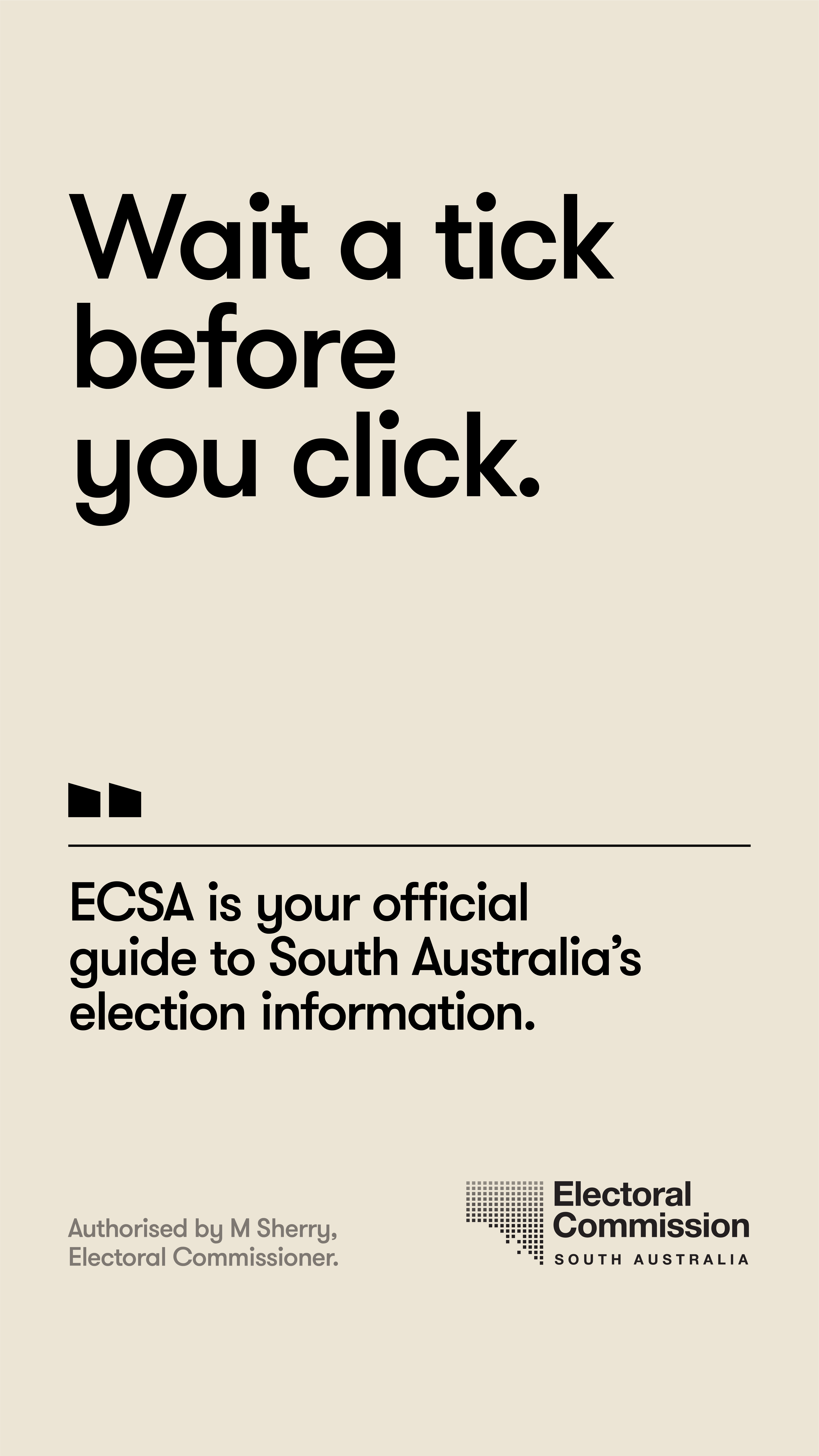
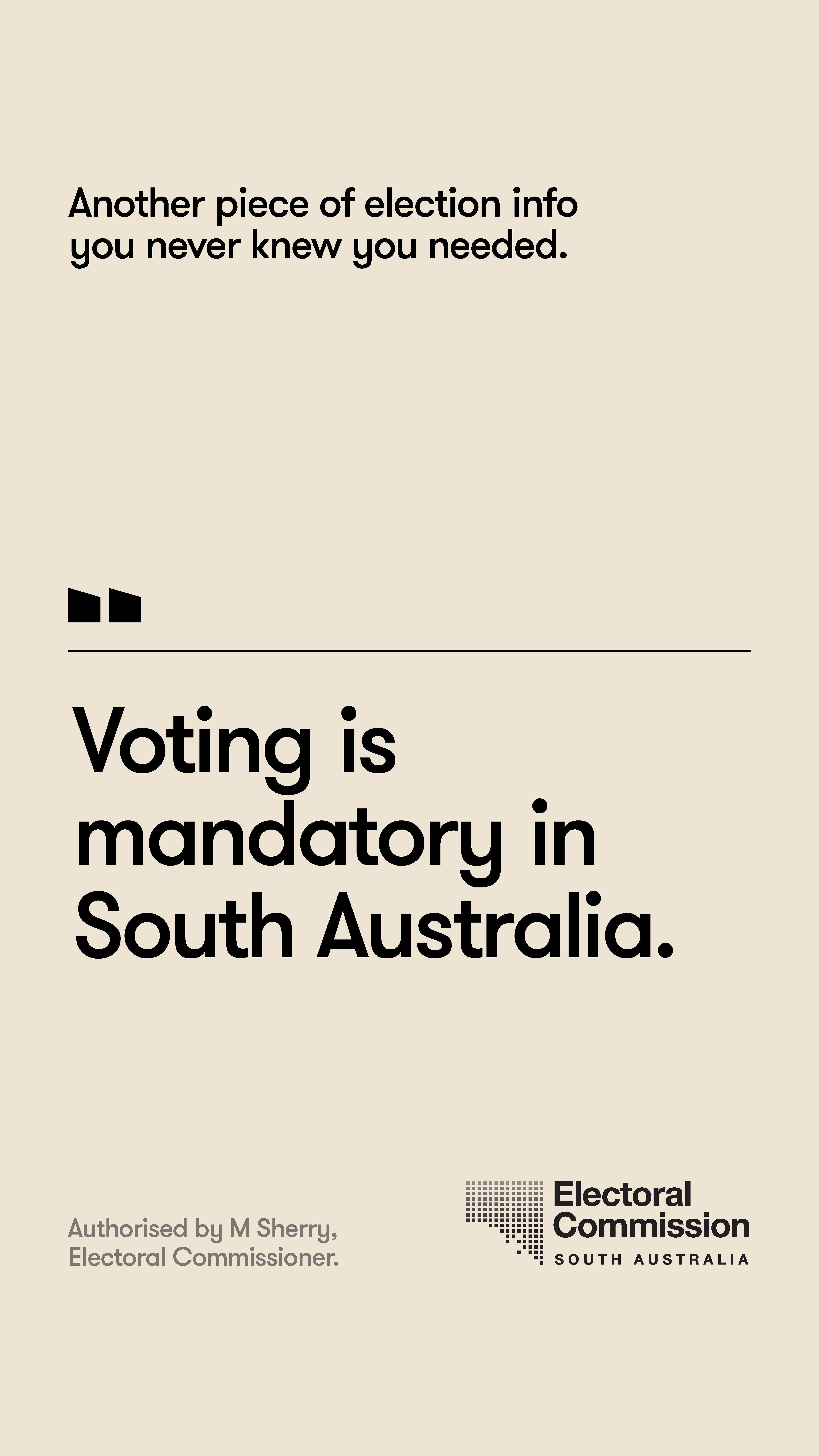
The State Election Official Guide (coming soon)
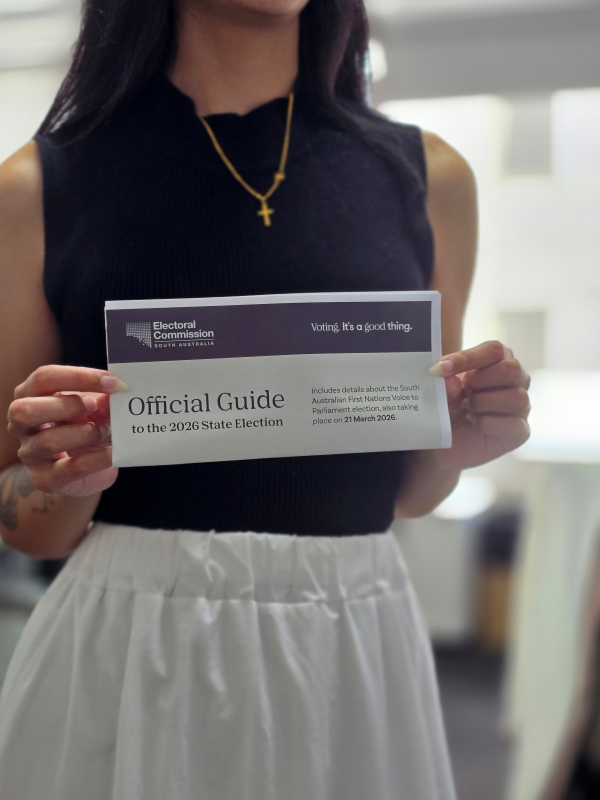
Introduction
Electoral communication plays a vital role in helping voters make informed decisions before casting their vote.
Not all misinformation is intentional. Often, people share content without realising it’s inaccurate. That’s why it’s essential to check the source and ensure the information is reliable, up-to-date, and safe before sharing.
When false information spreads, whether through social media or other channels, it can erode trust in democratic systems and create confusion.
Help protect the integrity of our elections. Before you share, stop and verify. Visit the Mis-Dis Register today and play your part in stopping misinformation.
The Electoral Commission of South Australia is the official source of election information in South Australia.
Resources
Register (coming)
Tips
Verify the source. Is it from a credible site or verified account? Check if other trusted outlets report the same story.
Inspect visuals. Look closely at images and videos - could they be altered? Many platforms label AI-generated or manipulated content.
Read beyond the headline. Headlines and images can mislead. Check the full story and publication date for context.
When unsure, don’t share. If concerned, reach out to the platform directly.
Useful links
- ACMA tips to spot misinformation or disinformation
- Australian Code of Practice for Disinformation and Misinformation
- AEC stop and consider campaign
- Details
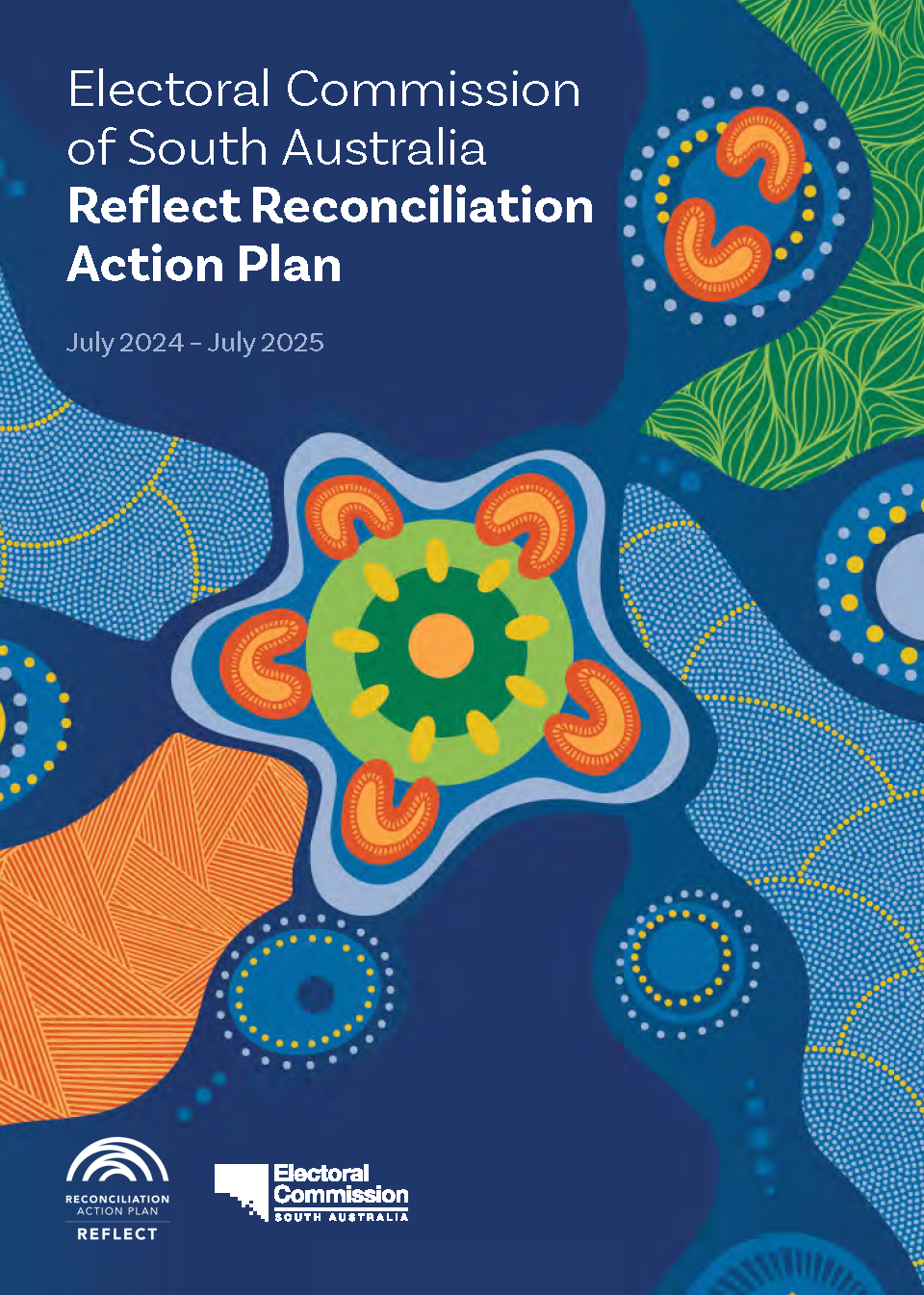
The Reflect RAP sets out ECSA’s commitment to reconciliation and the actions it will take to build the organisations understanding and recognition of Aboriginal and Torres Strait Islands cultures, histories, knowledge and rights.
This RAP is the starting point of ECSA’s reconciliation journey.
ECSA has a proud history of collaborating with Aboriginal and Torres Strait Islander communities throughout South Australia to ensure they can exercise their rights to participate in electoral events, including the APY Executive Board and the SA Local First Nations Voice to Parliament elections.
This Reflect RAP aims to build upon and consolidate these previous efforts, enshrining reconciliation as a core priority for ECSA in the lead-up to future State, Local Government, and other First Nations elections. It represents ECSA’s commitment to continually improving its effectiveness in working with diverse Aboriginal and Torres Strait Islander communities—whether remote, regional, or urban—and delivering electoral services that meet their needs.
...
Our partnerships / current activities
Over many years ECSA has been working with the various communities located in the Anangu Pitjantjatjara Yankunytjatjara (APY) lands in conducting their Executive Board elections.
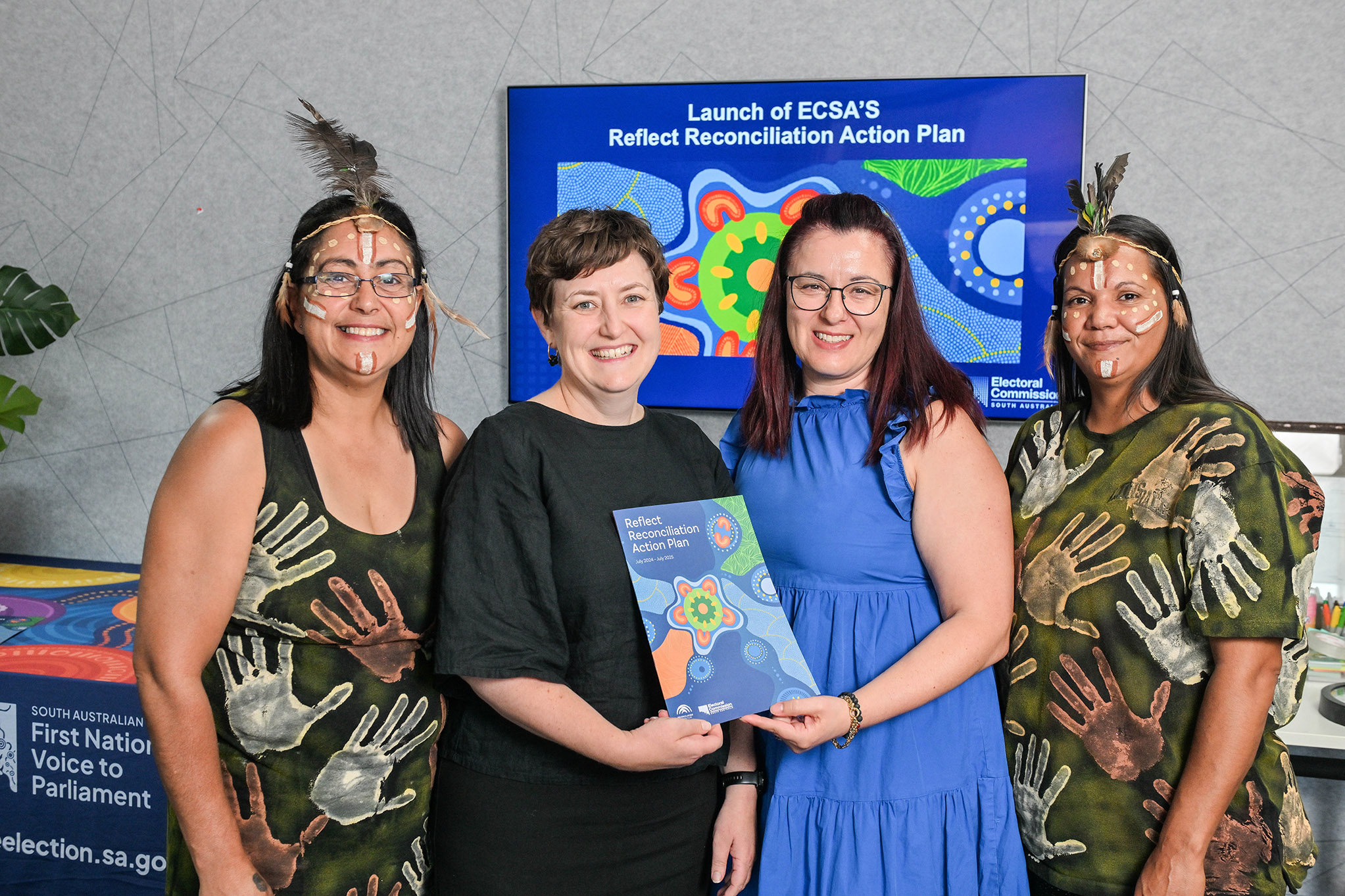
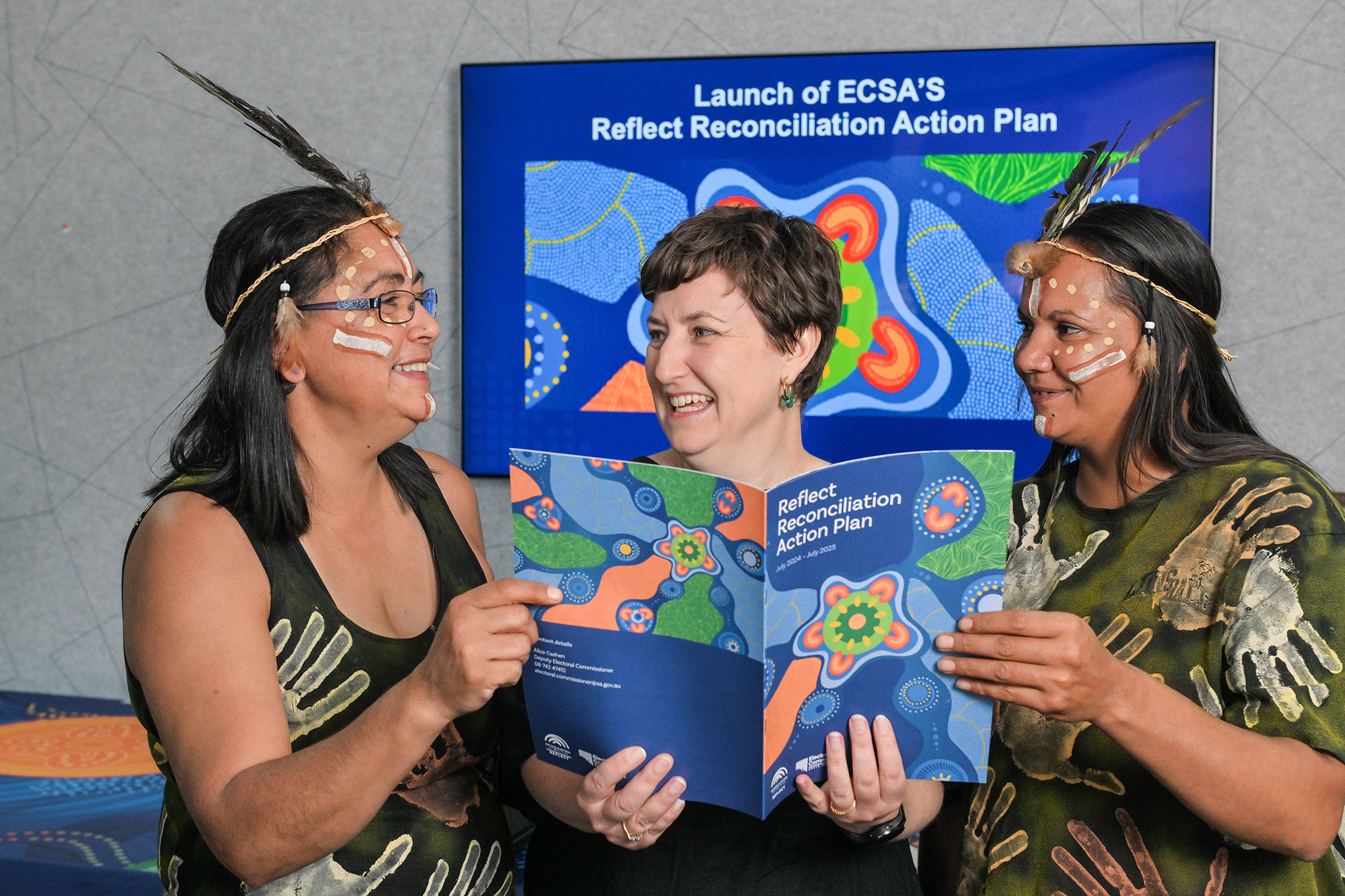
...
Relationships
| Number | Action |
|---|---|
| 01 | Establish and strengthen mutually beneficial relationships with Aboriginal and Torres Strait Islander stakeholders and organisations. |
| 02 | Build relationships through celebrating National Reconciliation Week (NRW). |
| 03 | Promote reconciliation through our sphere of influence. |
| 04 | Promote positive race relations through anti-discrimination strategies and antiracism. |
...
Respect
| Number | Action |
|---|---|
| 05 | Increase understanding, value and recognition of Aboriginal and Torres Strait Islander cultures, histories, knowledge and rights through cultural learning. |
| 02 | Demonstrate respect to Aboriginal and Torres Strait Islander peoples by observing cultural protocols. |
| 03 | Build respect for Aboriginal and Torres Strait Islander cultures and histories by celebrating NAIDOC Week. |
...
Action
| Number | Action |
|---|---|
| 08 | Improve employment outcomes by increasing Aboriginal and Torres Strait Islander recruitment, retention and professional development. |
| 09 | Increase Aboriginal and Torres Strait Islander supplier diversity to support improved economic and social outcomes. |
| 10 | Establish and maintain an effective RAP Working Group (RWG) to drive governance of the RAP. |
| 11 | Provide appropriate support for effective implementation of RAP commitments. |
| 12 | Build accountability and transparency through reporting RAP achievements, challenges and learnings both internally and externally. |
| 13 | Continue our reconciliation journey by developing our next RAP. |
DOWNLOADABLE DOCUMENT

